2017 SRC Highlights
SRC had a productive 2017. Here are some of the highlights we are proud to share with you.
- We published 17 research papers in scientific journals, more than any other year for SRC. These papers ranged in scientific topics from evaluating levels of mercury toxicity in sharks to understanding the physiological capture stress responses of sharks to fishing.
- Two of our research papers were featured on the covers of scientific journals, viewed below.
- We conducted over 99 research field trips out of Miami supporting our ongoing research projects.
- Our team brought over 1250 Citizen Scientists, mostly school kids, on our research vessels to participate in our hands-on shark science.
- Setting another SRC research record for 2017, this past year our team tagged and sampled 466 sharks of 11 different species, the largest being a 400 cm Great Hammerhead.
- Our SRC team spoke to over 2500 people in over 18 outreach events, including Tortuga Music Festival, Sandoway SharkFest, and much more.
- SRC hosted 3 successful public social events, sharing some of our adventures with the public while also enjoying time outside of the field and the lab.
- Our team presented scientific talks at several national and international conferences, including the American Elasmobranch Society. Lab Director Dr. Neil Hammerschlag presented a keynote address at the European Elasmobranch Association’s annual meeting in Amsterdam.
- Our research was featured in several prominent media outlets, including Discovery Channel’s Shark Week (Phelps vs. Shark) and Discovery Family (Shark Days of Summer), and Yahoo news.
- For the first time ever, we conducted a Summer Research Program, where college students from across the US spent several intense weeks with us in the field and laboratory conducting research.
- Neil Hammerschlag and PhD student Rachel Skubel traveled to the Galapagos to conduct collaborative research that will also be featured in a 2018 T.V. documentary on Discovery Channel’s Shark Week.
- Several SRC Masters students defended their thesis, including Leila Atallahbenson, Emily Rose Nelson, and Cameron Perry, as well as former SRC lab manager & intern coordinator, Catherine Macdonald, who defended her PhD.
- We launched our “Name A Shark” platform, where people from the public can make a small donation to name a tagged sharks and receive a special ID card with all the biological information of their named sharks.
- Our social media platforms connected new audiences, with our Twitter reaching 4,700 followers, our Facebook page reaching over 11,000 likes, and our Instagram with over 17,000 followers.
- We welcomed our largest class of SRC interns, 40 people made up of undergrads, graduate students, faculty, staff and dedicated volunteers.
- We launched several new research projects, while continuing ongoing research programs, such as our White Shark Research in South Africa, Tiger Shark Research in Tiger Beach, Bahamas, and ourUrban Shark Project aimed at investigating how urban environments may be effecting the behavior and health of coastal sharks.

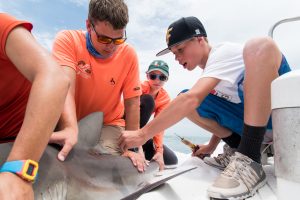
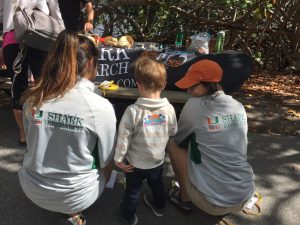
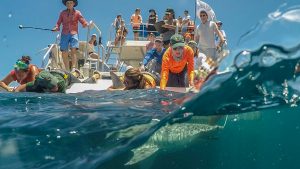
Directed by Dr. Neil Hammerschlag, the Shark Research & Conservation Program (SRC) is a joint initiative of the Abess Center for Ecosystem Science & Policy and Rosenstiel School of Marine & Atmospheric Science at the University of Miami. Based at UM’s Rosenstiel School, SRC conducts research primarily focused on the ecology, movement and conservation of sharks. A core component of our work is to foster scientific literacy and environmental ethic in youth and the public by providing exciting hands-on field research experiences in marine conservation biology. To learn more, visit www.SharkTagging.com
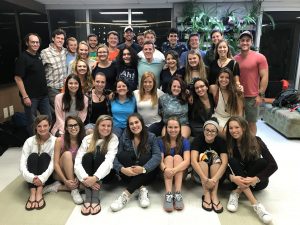
Thanks to the SRC team, collaborators, and supporters for another incredible year, and lets make 2018 even better.

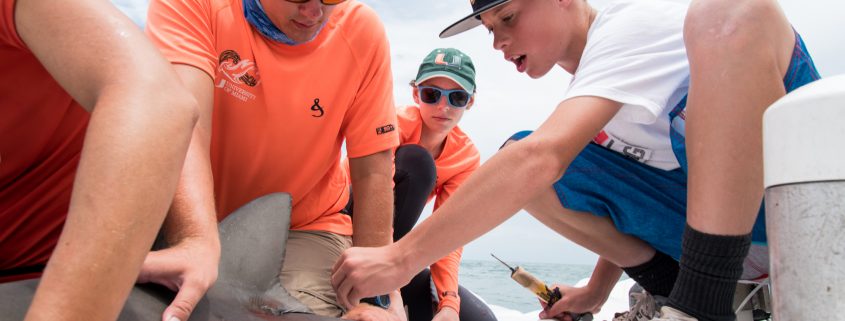
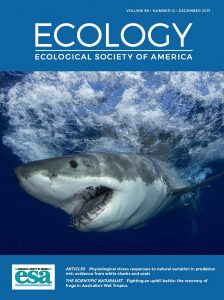
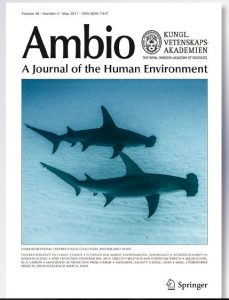


Leave a Reply
Want to join the discussion?Feel free to contribute!